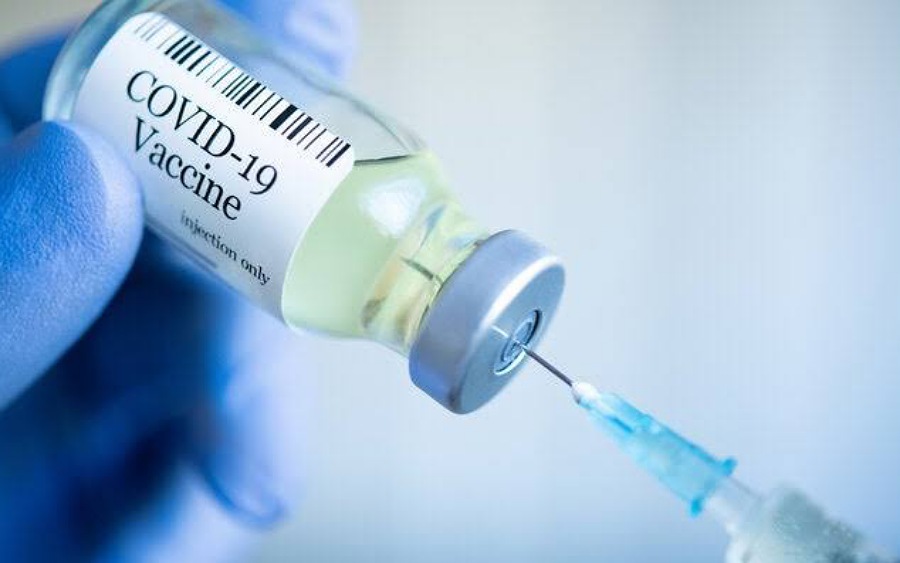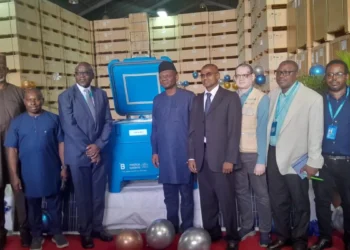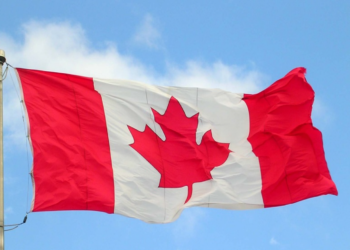The World Health Organisation (WHO) recently announced that it will utilize a $9.3 million grant provided by the Canadian Government to carry out COVID-19 vaccination in the 15 states with the lowest vaccination rates in Nigeria.
Dr. Walter Mulombo, WHO Country Representative, made this announcement during the launch of the Canada Global Initiative for Vaccine Equity (CanGIVE) grant in Abuja.
Nairametrics learns that the grant will be directed towards the 15 lowest-performing states, namely: Benue, Kogi, Taraba, Katsina, Kebbi, Anambra, Ebonyi, Akwa Ibom, Bayelsa, Delta, Edo, Rivers, Lagos, Ogun, and Ondo.
What he said
Dr Mulonmbo emphasized that the grant has come at the right time to help improve coverage and uptake of the vaccine among the priority populations in line with the current WHO SAGE roadmap on the uses of COVID-19 vaccines.
He said,
- “It will help to mainstream and integrate gender-responsive, equity-based and human rights-focused interventions that promote `leaving no one behind` agenda in the country”.
- “Nigeria has made progress in the fight against COVID-19. As of July 17, 2023, 77,285, 627 persons in Nigeria have completed the primary series of COVID-19 vaccination, with, 87,838,137 persons receiving at least one dose of the vaccine”.
- “Also, 16,011,524 of those who have completed the primary series have received a booster dose of the vaccine”.
Mulombo said that in spite of the achievement, there was still more work to be done.
Implementing timely intervention
The primary objective is to implement gender-responsive, equitable, and human rights-focused interventions that promote inclusivity and ensure that no one is left behind in the vaccination efforts.
He expressed that the grant arrives at a crucial time to enhance vaccine coverage and uptake among priority populations, aligning with the current WHO Strategic Advisory Group of Experts (SAGE) roadmap on the use of COVID-19 vaccines. Nigeria has made progress in combating COVID-19, with millions of people having completed their vaccination series and received booster doses.
The challenge of low vaccine coverage
Despite these achievements, challenges remain, as 14 states still have vaccination coverage of less than 50% among their target populations.
Certain vulnerable groups, such as the elderly (aged 50 years and above), people with underlying health conditions, health workers, those living in humanitarian and security-compromised communities, and pregnant women, require more comprehensive vaccination coverage.
The pandemic is still a threat
Mulombo emphasized that although the WHO Director-General’s declaration that COVID-19 is no longer a Public Health Emergency of International Concern (PHEIC) is a significant milestone, the pandemic remains a global and national health threat.
Therefore, it is crucial for individuals to continue protecting themselves by completing the primary series of COVID-19 vaccination and, for those who have already done so, to adhere to the booster dose schedule.
He assured the Ministry of Health that the WHO will continue to collaborate with partners in supporting the government’s efforts to safeguard vulnerable populations and strengthen health systems.
The focus will be on implementing a one-health approach to preparedness and response and integrating COVID-19 surveillance and response activities into routine health programs.
Global initiative supporting health systems
The Canadian High Commissioner to Nigeria, Mr. Jamie Chrisoff, stated that Canada established CanGIVE as a global initiative of 317 million Canadian dollars to address COVID-19 priorities in partner countries and support health systems.
Nigeria received the highest share of $9.3 million in this initiative and was also among the first countries to receive COVID-19 vaccine doses from Canada in September 2021.




















